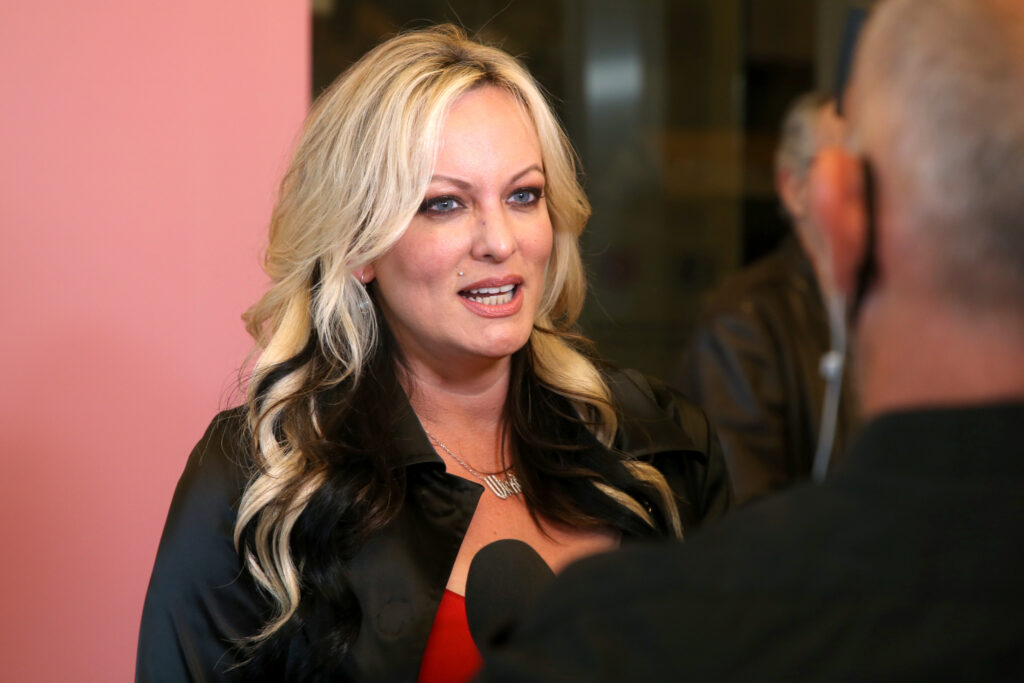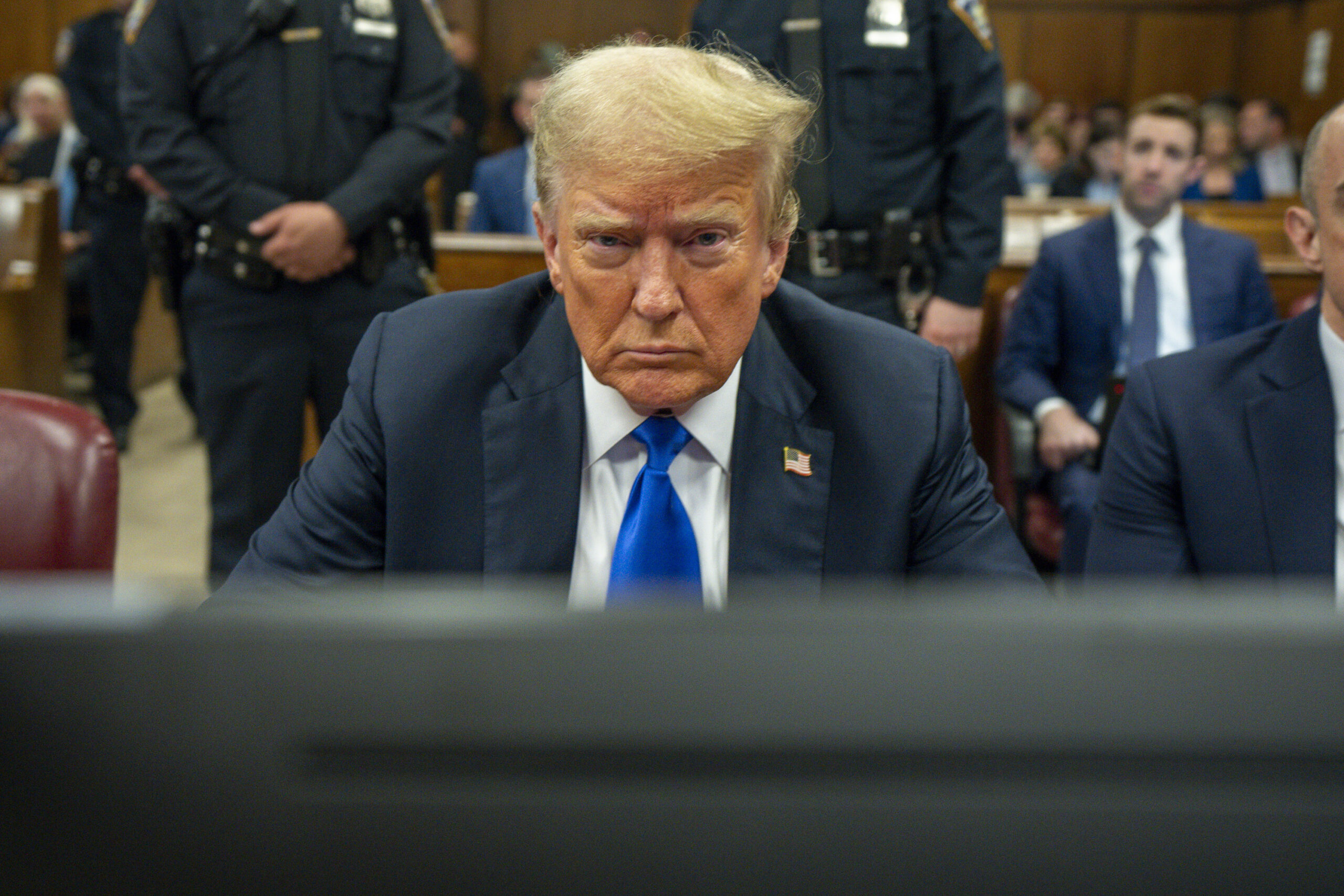President Trump’s appeal of his 34 convictions for falsification of business records in the criminal hush money case involving an adult film performer, Stormy Daniels, could, if successful, undo the verdicts that make him the first felon to serve as America’s president.
The 47th president has filed timely notice of his intent to appeal those verdicts, which were brought in by a New York jury in a contentious state criminal trial presided over by Judge Juan Merchan, whom Mr. Trump has denounced for bias and conflicts of interest. The appeal will kick into full gear once Mr. Trump files his brief outlining why his convictions ought to be overturned.
The Sun is exclusively reporting that on Thursday, he secured a two-month extension to submit that filing. The Manhattan district attorney, Alvin Bragg, agreed to that extension. The previous deadline was July 29. Now, arguments will be due on September 29.
The appeal will be heard by the New York supreme court’s appellate division — first department, which is the Empire State’s intermediate review tribunal. Judge Merchan sentenced Mr. Trump to an unconditional discharge, meaning that the 47th president faces no further punishment beyond his status as a convicted felon. Mr. Trump tried to stop that sentencing, which took place days before his inauguration, but the Supreme Court declined to intervene.
Mr. Bragg persuaded a Manhattan jury that Mr. Trump falsified business records with respect to payments made to Ms. Daniels, whose real name is Stephanie Clifford. Those payments were executed by Mr. Trump’s former lawyer, Michael Cohen, who as a result of the probes into Mr. Trump became a convicted felon who served prison time. He testified against his erstwhile boss at trial.

Under New York law falsification of business records is a misdemeanor, but Mr. Bragg engaged in legal gymnastics that enabled him to elevate the crimes to felonies: If the records are falsified in the service of a second crime, those acts can become felonies. Judge Merchan, who donated small sums to Democrats in 2020 — including President Biden — ruled that to convict Mr. Trump the jury need not agree on the nature of that second crime, smoothing the path to a felony conviction.
Mr. Trump could argue on appeal that those jury instructions were defective, a blunder on the part of the judge that is usually grounds for a new trial. Judge Merchan told the jurors that to convict they “must conclude unanimously that a defendant conspired to promote or prevent the election of any person to a public office by unlawful means,” but that they “need not be unanimous as to what those unlawful means were.”
Judge Merchan reasoned that because these “unlawful” means were not themselves charged by Mr. Bragg — who resurrected a case that he at first declined to prosecute, and was passed on by the Department of Justice — they did not need to be determined unanimously, as is required for a guilty verdict. Jurors could have concluded that Mr. Trump falsified the records in the service of further business fraud, tax evasion, or campaign finance violations.
Long before the verdict, Mr. Trump seethed about Judge Merchan’s alleged bias, and pointed to the left-leaning political activities of his adult daughter, Loren. One client of Ms. Merchan’s marketing firm was Mr. Trump’s opponent in the 2024 presidential campaign, Vice President Harris. Mr. Trump requested that Judge Merchan recuse from the case, and the judge imposed a gag order on him — and multiple fines and the threat of prison — under which Mr. Trump continually chafed.
Another avenue of appeal for Mr. Trump could be asking the appellate court to extend the reach of the Supreme Court’s holding in Trump v. United States that official presidential acts are presumptively immune from prosecution, and that unofficial ones are bereft of that protection. Judge Merchan ruled in December that Mr. Trump could not claim immunity to vacate his convictions because the guilty verdict rested on “private acts.”
Mr. Trump argued that some of the evidence relied on by Mr. Bragg stemmed from his official duties and that some of the checks to Ms. Daniels were signed at the Oval Office. On review New York’s appellate court could disagree with Judge Merchan that, “If error occurred regarding the introduction of the challenged evidence, such error was harmless in light of the overwhelming evidence of guilt.”
Mr. Trump last month asked the Second United States Appeals Circuit, rather than a New York State court, to hear what he called his “one of a kind” conviction. His attorney, Jeffrey Wall, told the three-judge panel that “the federal officer is entitled to a federal forum, not to have those arguments heard in state court.” The 47th president’s extension on his state court filing could be an effort to give the federal judges more time to weigh in.
The president has repeatedly argued that this case ought to be heard in federal court, which he sees as a more sympathetic venue than the Empire State, where two elected Democratic prosecutors, Mr. Bragg and Attorney General Letitia James, have relentlessly pursued him, aided by agreeable state judges. If the Second Circuit takes the case, it would be just one appeal away from the Supreme Court, where six of the nine justices lean to the right.
(Except for the headline, this story has not been edited by PostX News and is published from a syndicated feed.)

